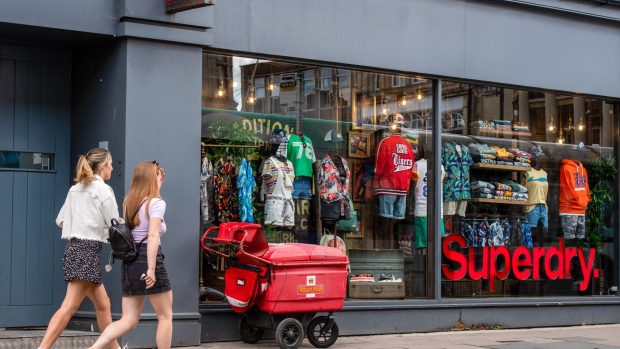Jun 9, 2023
Elliott-Backed Lender Bantry Bay Dares to Take on Distressed UK Retailers
, Bloomberg News

(Bloomberg) -- Many firms are afraid to invest in struggling UK retailers for fear of the next big blow-up, but there’s one notable exception that keeps coming back for more: Elliott-backed Bantry Bay Capital.
The London-based firm has become a lender of last resort for British retailers struggling to stay afloat. The company has splashed out more than £400 million ($499 million) of debt on budget retailer Matalan, fashion brand Superdry Plc and online group Asos Plc all in the space of less than a year.
The three retailers between them have issued at least four profit warnings in the past 12 months, and Asos and Superdry have raised equity for extra funding. All three have agreed to pay more interest to secure Bantry funds as traditional lenders lost the appetite to finance them.
And that’s the catch. While Bantry’s lending may give retailers a lifeline in the short term, in the longer run it saddles them with higher interest payments just when they’re struggling with higher costs as well as consumers whose budgets are getting pinched.
“Any improvement in profitability you might have, part of that will be eaten up by your cost of debt,” said Eleonora Dani, an analyst at Shore Capital.
Next up may be New Look, the British fashion chain which has lurched from one debt restructuring to another in recent years, and is currently looking at how to deal with £100 million of debt due next year.
Bantry is backed by US activist Elliott Capital Management, whose founder Paul Singer controls at least 75% of Bantry’s voting rights. Elliott leaves management of the fund to father-and-son team Dennis and Jonathan Levine and Bantry plays a key role in helping retailers get over financing hurdles.
However, with the cost-of-living crisis and hangover from Covid weighing on retailers, there is also a chance that the alternative lender could find itself holding the keys to some well-known British brands.
“Bantry Bay is taking the risk that one or more of the retailers they’ve lent to may not survive in their current form,” said Caroline Gulliver, an analyst at Stifel.
Shop price inflation accelerated to 9% in May, a new peak for an index that started in 2005, according to the British Retail Consortium. There are signs that inflation is becoming entrenched and that may put Bantry’s strategy to the test.
“You’ve got to be brave to be involved in financing niche apparel companies,” said David Beadle, a senior analyst at Moody’s Investors Service. “The list of past restructurings is very long.”
Representatives for Bantry Bay, Elliott, Asos, Superdry, Matalan and New Look declined to comment when contacted by Bloomberg News.
Asset Floor
Bantry tries to put a floor on its potential losses by focusing on asset-backed lending, typically secured by stock, money owed or intellectual property. If a business were to collapse, Bantry would likely get at least some of its money back via selling those assets. However, that can be a long and unpredictable process, during which time their value might have dropped.
So far Bantry has successfully navigated its lending, even during crises. Prior to 2018, it operated under the name Grovepoint Credit and lent around £60 million to British Home Stores after the struggling department store chain had been sold by Philip Green for £1. When BHS went into administration, Grovepoint was reported to recoup most of its money, which was secured against some BHS stores.
Bantry lent £60 million to Matalan last year when banks wanted out. A few months later, the budget chain was put up for a fire sale amid looming debt maturities, with founder John Hargreaves teaming up with none other than Elliott to try to retain control of the business. Eventually, Matalan’s senior bondholders took the reins of the company and repaid Bantry’s facility.
“It’s not like Bantry Bay are doing this out of the goodness of their hearts. They are making some decent money in doing so,” said Wayne Brown, an analyst at Liberum.
Asos’s new facilities charge average interest of about 11% and they’re £75 million smaller than the previous lending. Asos said costs associated with the refinancing will amount to around £45 million in the second half.
The loan to Asos was announced last month, just 16 days after the online retailer revealed a four-month extension on its borrowing from Barclays, HSBC and Lloyds. Mike Ashley’s Frasers Group Plc, one of Asos’s largest shareholders, has pushed back against the decision to take on a loan from an Elliott-backed fund, arguing it was too costly. Frasers had offered to provide extra equity funding to Asos in return for closer collaboration but was turned down.
“Was any consideration given to the position of Asos’s shareholders and the operations of US funds and their loan-to-own strategy?” Frasers executives asked their Asos counterparts in a recent letter questioning the refinancing.
--With assistance from Luca Casiraghi.
©2023 Bloomberg L.P.





